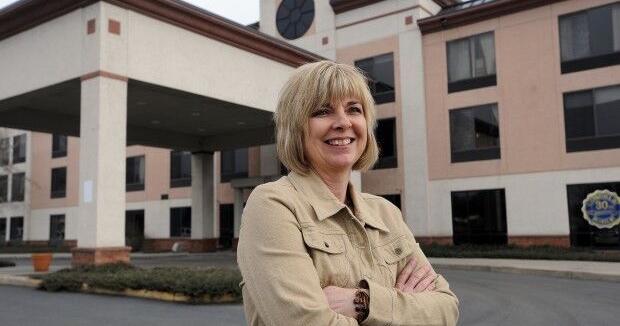Steve Luxton heads the nonprofit Energy Coordinating Agency, which helps people pay for weatherization that can lower their utility bills, and said the group has found that up to half of the Philadelphia households that apply for weatherization are ineligible because of a leaky roof or other issue .
“There’s literally hundreds of homes that will be eligible for the Whole Home Repair program that will be able to be weatherized,” Luxton said. “It really does have a domino effect.”
The other existential issue of this proposal is designed to address is gentrification.
One driver of gentrification is the fact that homeowners in quickly-developing neighborhoods are often beset by developers eager to buy their land. Groups supporting the Whole Home Repair Program say that if a homeowner is behind on costly repairs, they can feel pressure to sell the home for a fraction of its true worth, losing potential generational wealth in the process.
The program will be run under the state’s Department of Community and Economic Development. County agencies — or groups that do housing assistance work within counties — will be able to apply for certain amounts of money, and then help property owners apply to get a slice of the funding.
Individual homeowners will be eligible for a grant of up to $50,000, and landlords can get a repayable loan for up to that same amount. Homeowners are eligible if they earn up to 80% of the median income in their area. Loans are only available to small landlords, and they carry additional restrictions on how much that landlord can charge in rent.
Some of the money from the fund will also be used to add staff on the state and county level to help shepherd people through the grant or loan process, and to provide workforce training so that more people can get certified to weatherize and upgrade aging houses.
‘We’re going to have to fight for this’
The entire budget still needs a signature from Democratic Gov. Tom Wolf, who has indicated he broadly supports it. There isn’t yet a firm timeline for the program to take effect. Once the budget is signed into law, DCED will need to set up guidelines for the program, and then counties and other groups can begin applying for funding and allocating it to homeowners.
Argall noted, just because a program is created doesn’t mean it’ll get funding every year. In times of recession or poor revenue, Pennsylvania’s GOP-controlled legislature has often sought to make cuts to public programs to balance the books, rather than raising taxes.
The Whole Home Repair Program, Argall acknowledged, would be an easy candidate for the chopping block. He’s already thinking about the next budget.
“We’re going to have to fight for this every year,” he said — adding, he’s prepared to wield as much of his own sway as he can to keep it on the books. “This issue is not going away.”
